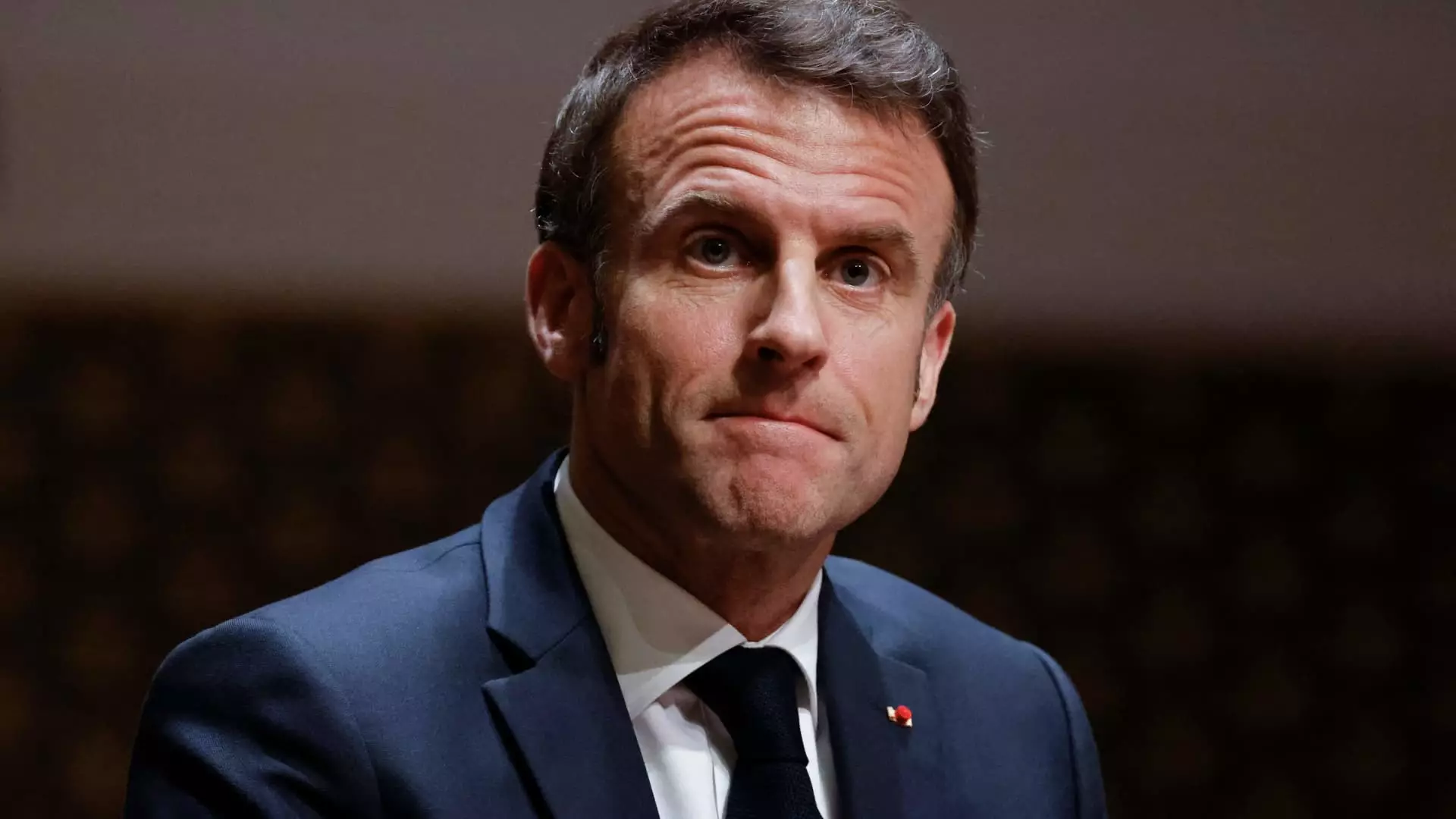In recent months, France’s political scene has experienced significant upheaval, rooted in rising support for xenophobic parties and a corresponding decline of traditional centrist coalitions. The ramifications of this shift became evident during the first round of the snap parliamentary elections, where the anti-immigrant National Rally (RN) emerged as a dominant force. This situation starkly contrasts with President Emmanuel Macron’s centrist alliance, which struggled to secure a meaningful foothold in the early voting results.
The preliminary data provided by France 2 indicates that the National Rally achieved approximately 34% of the vote, eclipsing its competitors and underscoring a critical shift in voter sentiment. This anti-immigrant party has long been a polarizing entity in French politics, yet its ability to secure a substantial vote share reflects a growing acceptance among segments of the population. The leftist New Popular Front (NFP) alliance followed closely with about 28.1%, while Macron’s centrist bloc managed a mere 20.3%. Such figures are alarming for Macron, signifying potential alienation among the center and traditional left, as the electorate seems increasingly drawn to parties that resonate with their socio-economic anxieties, particularly those surrounding immigration and national identity.
The Mechanism of Electoral Process
Understanding France’s electoral system is crucial for grasping the implications of these results. To be elected outright in the first round, a candidate must obtain an absolute majority of votes while also securing support from at least 25% of the local electorate. When these criteria are not met, a second round of voting ensues, which includes the top two candidates, creating a clearer competitive dynamic. As observed by political analyst Antonio Barroso, the outcome of the first round may not be indicative of the final results. Particularly, the pivotal point is how many candidates advance to this crucial second round, as it will largely dictate the ensuing political landscape.
Anticipating Political Dynamics
With a hung parliament looming due to the distribution of votes, France may soon enter a phase marked by political unpredictability. Early projections indicate that no single party is likely to secure the 289-seat majority necessary to govern unencumbered. Instead, French voters now face a scenario where coalition negotiations may be essential, further complicating governance amid a backdrop of potential economic turmoil. Macron’s term extends until 2027, cementing his position despite the disappointing electoral performance of his centrist coalition. Nonetheless, he may be coerced into appointing a prime minister from the RN, particularly if they manage to leverage their gains into a key leadership role.
The decision to call for a snap parliamentary election following a dismal showing in the European Parliament elections was an audacious strategy for Macron. Political analysts have categorized this as a high-stakes gamble, where Macron banked on a collective fear of the far right to galvanize support for his own party. However, this strategy appears to have backfired, inadvertently empowering his opponents instead. The RN’s escalating popularity reveals a potential disconnect between the government’s perspective and the electorate’s concerns, primarily surrounding immigration and economic stability.
The Economic Ramifications of Political Instability
The political environment following these elections could have profound implications for France’s economic stability. Concerns ripple through financial markets as investors evaluate the likelihood of effective governance amidst a fragmented assembly. A government formed through cohabitation—in which Macron may manage foreign affairs while another party oversees domestic policy—could lead to protracted legislative gridlock. Such divisions jeopardize France’s capacity to push through vital economic reforms and could stymie efforts to recover from post-pandemic economic challenges.
As the final results become clearer and the second round of voting approaches, the implications of these early findings paint a troubling picture for France. The rise of National Rally not only showcases shifting voter priorities but also suggests an electoral landscape fraught with uncertainty. With Macron facing challenges on both domestic fronts and the broader European stage, the influence of political dynamics on France’s socio-economic landscape will be closely scrutinized in the weeks and months to come. This election cycle marks a pivotal juncture in French politics, one that encapsulates the complexities and challenges of modern governance in an increasingly polarized world.


Leave a Reply